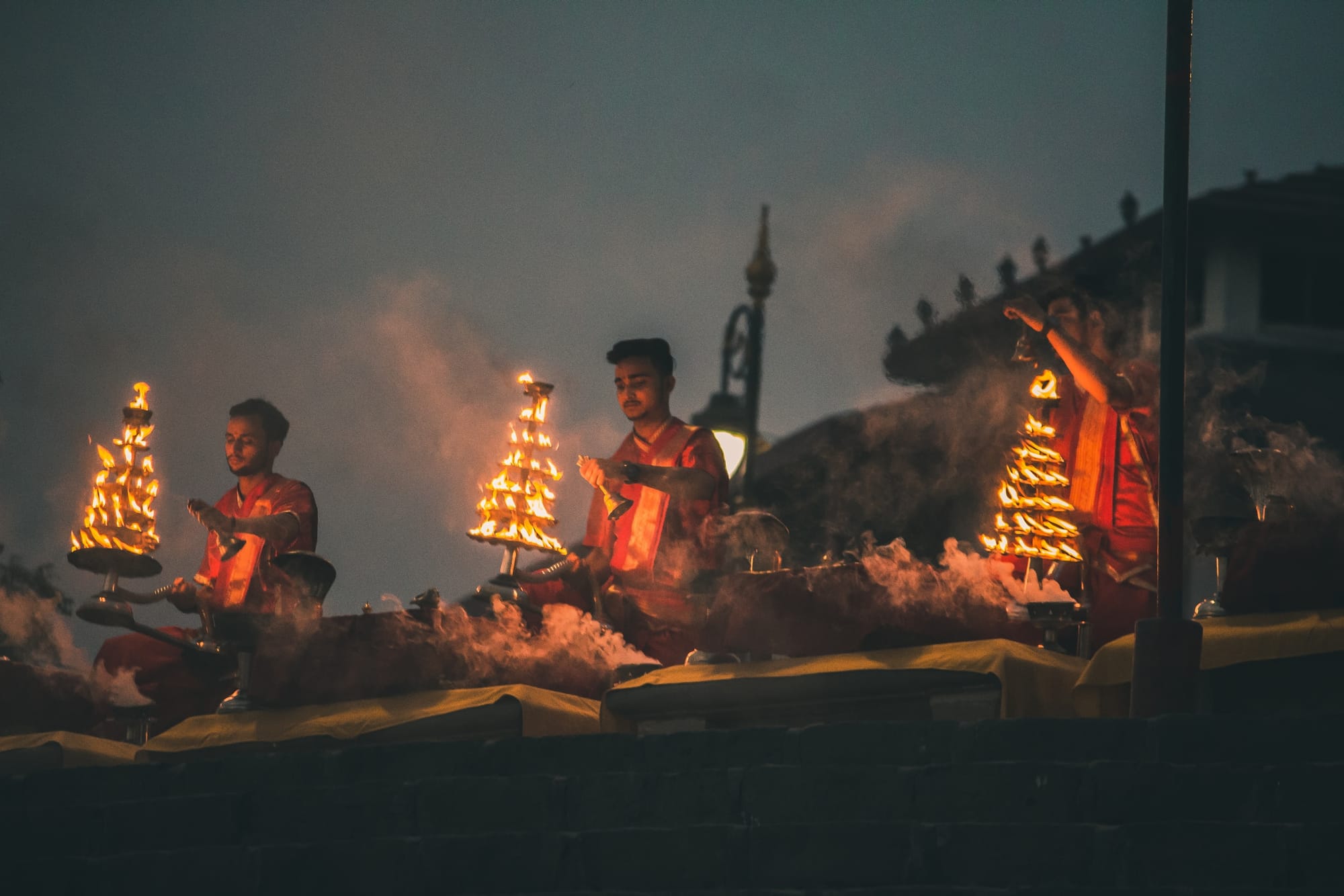GANGA DUSSEHRA 2023

Ganga Dussehra is an auspicious Hindu festival celebrated to honor the descent of the holy river Ganges on earth. It is celebrated on the tenth day (Dussehra) of the fortnight (Shukla Paksha) in the Hindu month of Jyestha (May–June).
In astrology, Ganga Dussehra holds significant significance, as it is believed to bestow divine blessings and spiritual purification on the devotees.
In this essay, Acharya Dharmikshree details the astrological aspects and significance of Ganga Dussehra.
Background of Ganga Dussehra:
Ganga Dussehra marks the day when the holy river Ganges, known as the lifeline of millions of people, descended from heaven to the mortal realm. According to Hindu mythology, King Bhagirath performed a severe penance to bring the Ganges to earth to purify the ashes of his ancestors and grant them salvation. Ganga Dussehra commemorates this sacred act and is celebrated with great devotion across India.
Astrological Significance of Ganga Dussehra:
Connection with Lord Jupiter:
Ganga Dussehra is associated with the planet Jupiter. Jupiter represents knowledge, spirituality in Vedic astrology. It is believed that performing rituals on this day and taking a dip in the holy river Ganges brings blessings of Lord Brihaspati, which leads to spiritual growth and overall well-being.
Cleansing and Purification:
Astrologically, Ganga Dussehra is considered a powerful opportunity to cleanse and purify oneself from negative energies and sins. The celestial energy on this day is believed to be conducive to spiritual practices, leading to inner purification and upliftment.<br>Ritual Bath: Taking a holy dip in the Ganges on Ganga Dussehra is considered highly auspicious. The holy river is believed to have the divine energy of many deities and has the power to cleanse sins, cure diseases and bless the devotees. It is said that the ritual bath purifies the body, mind and soul, and it is believed that all sins committed in previous lives can be washed away by this pious act.
Sacred offerings and prayers:
On Ganga Dussehra, devotees offer prayers, perform rituals and offer sacred offerings to the river Ganges. They seek forgiveness for their past wrongdoings, express gratitude for divine blessings, and pray for the well-being of their families and loved ones. It is believed that the river carries these prayers and offerings to the deities, and they are showered with blessings in return.
Planetary Transits:
Astrologically, Ganga Dussehra holds significance due to planetary transits during this period. The planetary alignment during this festival is said to enhance the spiritual energy of the day. Guruji believes that performing spiritual practices, such as reciting mantras, meditating and doing charitable work, during these favorable planetary alignments can yield greater spiritual benefits and reduce the malefic effects of the planets.
Symbolic Significance:
Ganga Dussehra symbolizes the eternal flow of divine wisdom and spiritual knowledge. As the holy river Ganges flows continuously taking the blessings of the Gods and Goddesses, similarly it represents the continuous flow of knowledge and spiritual energy in one's life. The festival encourages individuals to embrace the divine teachings and seek spiritual upliftment in their journey towards self-realization.
Rituals and Celebrations:
Ganga Dussehra is celebrated with great enthusiasm and devotion especially in different parts of India. Some of the major rituals and festivities associated with Ganga Dussehra are as follows:
Bathing in the Ganges:
Taking a holy dip in the river Ganges is the central ritual of Ganga Dussehra. Devotees gather in large numbers on the banks of the river and take a dip in the holy water. They offer prayers, chant mantras and seek blessings from the river goddess. It is believed that taking a bath in the Ganges on this day washes away sins and leads to spiritual purification.
Puja and Aarti:
Elaborate puja ceremonies and special aarti (devotional worship with lamps) are performed on the banks of the Ganges. Devotees offer flowers, incense, lamps and sweets to the river as a mark of devotion. Aarti is accompanied by the chanting of hymns and mantras, creating a serene and spiritually charged atmosphere.
Processions and Fairs:
Colorful processions are taken out in many cities and towns carrying idols of deities, especially Lord Rama and Goddess Ganga. Devotees participate in these processions with great enthusiasm, singing devotional songs and dancing in joy. Additionally, fairs and markets are held where people can indulge in festive shopping, enjoy cultural performances and taste traditional cuisine.
Charity and Dakshina:
Ganga Dussehra is considered an auspicious time to do charity work and help the less fortunate. Devotees engage in charitable activities by donating food, clothes and other essentials to the needy. It is believed that such acts of kindness on this day can bring blessings and spiritual qualities.
Recitation of scriptures and mantras:
Many devotees spend the day immersed in the recitation of holy scriptures such as the Ramayana and the Bhagavad Gita. They also chant mantras dedicated to Lord Rama, Goddess Ganga and Lord Vishnu to invoke their divine presence and seek their blessings. Recitation of these sacred texts is believed to provide spiritual knowledge and divine grace is received.
Vedic Yagya:
In some regions, Vedic rituals, yagyas and homas (fire ceremonies) are performed on Ganga Dussehra. Expert priests chant Vedic mantras, offer oblations to the sacred fire and seek the blessings of the deities. These rituals are believed to purify the atmosphere, drive away negative energy, and bring prosperity and well-being to the participants.
When is Ganga Dussehra 2023?
The auspicious time of Ganga Dussehra is from:
11:00 AM on Monday, May 29 to 1:00 AM on the next day, Tuesday, May 30, at 1:00 PM.
That is why this year Ganga Dussehra will be celebrated on 30th May.



